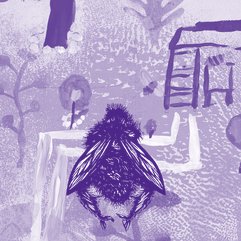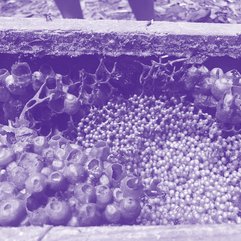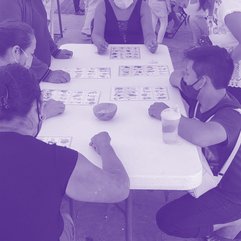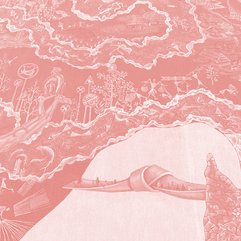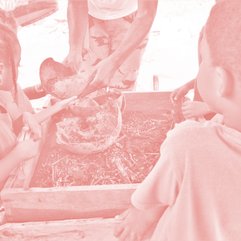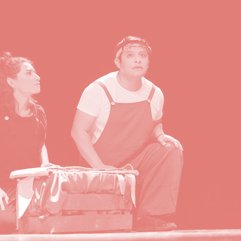„Neither Mine, Nor Yours, Our House”
How the Awaete people are fighting for their (cultural) survival , for the protection of the Amazon forest, and the restitution of their artefacts. Public presentation of the Instituto Janeraka.
19.00-21.00
Termin speichern
für Kinder und Erwachsene
auf Englisch/auf Portugiesisch

Members of the Instituto Janeraka are guests at Spore. Janeraka was founded in the Amazon region of Altamira out of the resistance of the Awaete, a population that has only been in contact with global society for a few decades. Here, in the Brazilian state of Pará, lies the frontline of the exploitation of the rainforest and the killing of people who protect the environment. Conflict, co-optation, violence, cultural erasure, denial of rights, and racism are still prevalent in the daily lives of Indigenous People. In this situation the Awaete people are constructing an Ancestral House Janeraka in Belém. The name Janeraka means Neither Mine, Nor Yours, Our House. It is a place for a dialogue and mediation of the colonial conflicts between the city and its habits and people from the water lands and forests.
A place of coexistence, active and empathetic listening, assistance and social mediation in accessing the rights of individuals and families of forest peoples such as ribeirinhos (people that live alongside rivers), quilombolas (Black resistance communities) and Indigenous people who need to be in the capital of Pará. A type of care that takes into account the peculiar factors of the cultures of the peoples of the forest, their worldviews, histories, individual and collective traumas – especially of peoples who suffer constant violence in contact with the urban city. The Janeraka is a shelter and artistic residency built for and by the Awaete and fellow peoples of the forest to support each other and co-create pathways of decolonisation and regeneration. It enables them to safeguard and archive knowledge of their heritage against cultural erasure, collectively combat one of the most devastating deforestation campaigns in the world on their land, and train their youth to engage with traditional culture in the digital age.
Members of the Instituto Janeraka will examine the situation of their community, the cultural and educational practices of the place they created, and at the same time raise the question of what to do with the artifacts that were taken from the community after the first contact and are now in collections in Germany, Austria and Switzerland.

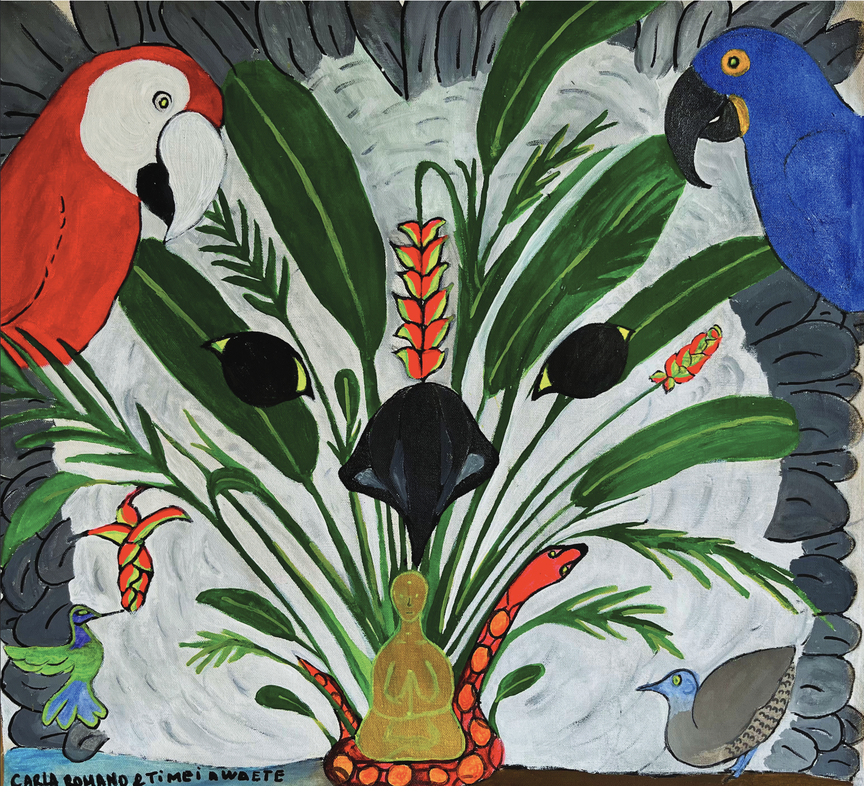 Time'i Awaete
Time'i Awaete



